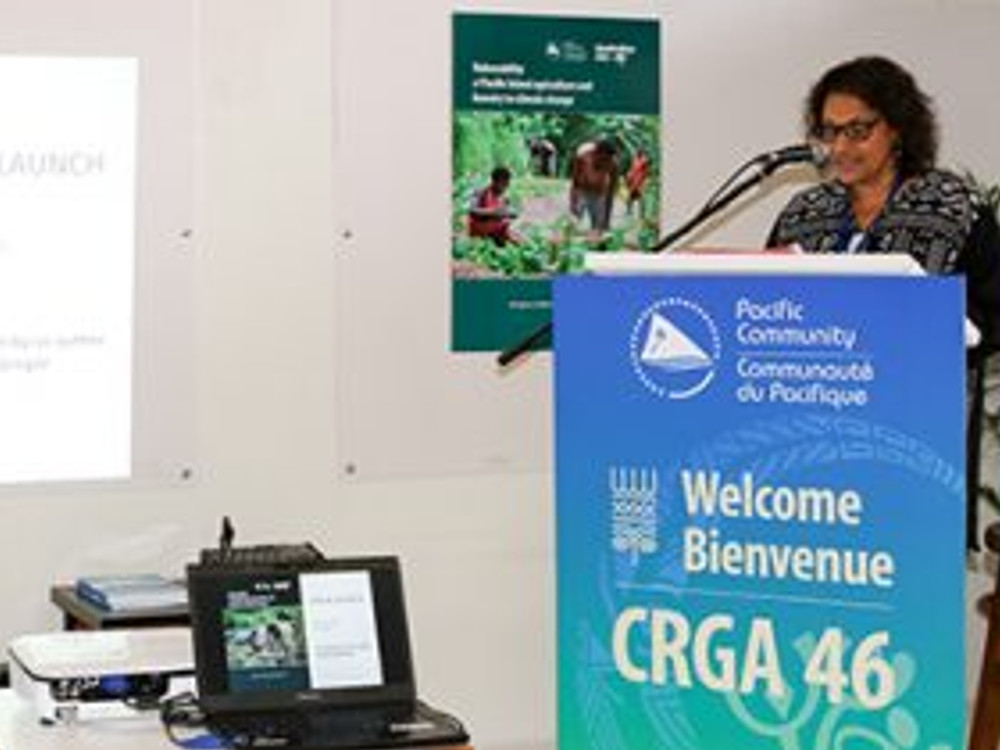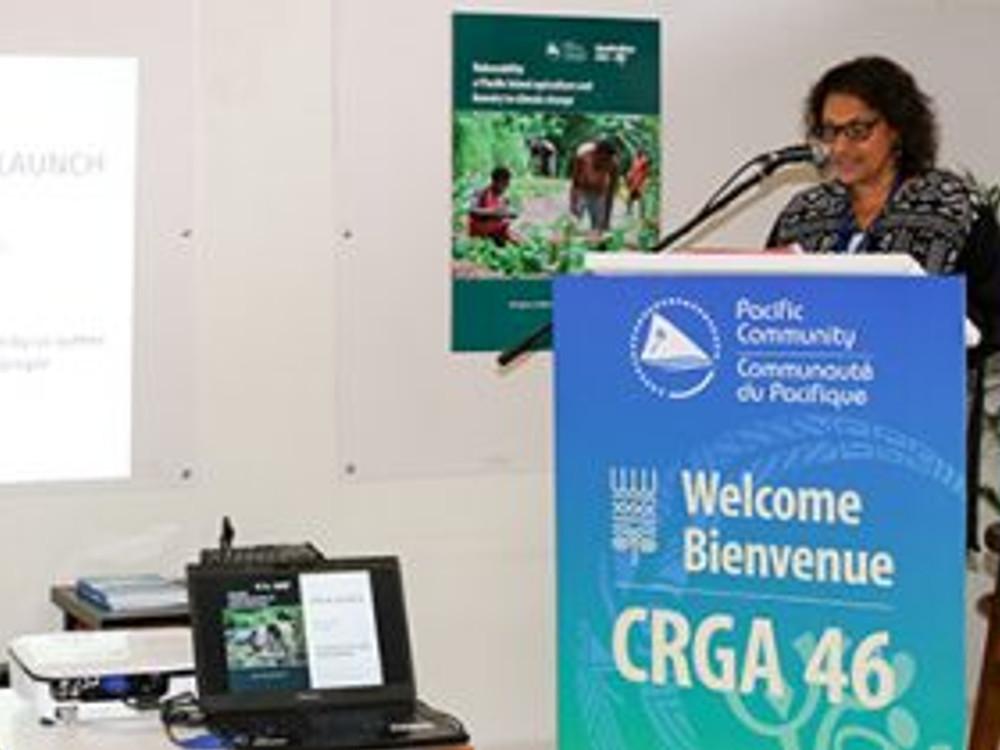 Climate change will have a negative impact on the overall productivity of agriculture and forestry across the Pacific Islands region in the coming decades, posing a critical load on food supply systems, economies and livelihoods.
Climate change will have a negative impact on the overall productivity of agriculture and forestry across the Pacific Islands region in the coming decades, posing a critical load on food supply systems, economies and livelihoods.
That is a key message in a landmark book released today by the Pacific Community (SPC), with the funding support from Australia, in the presence of representatives of more than 20 Pacific Island countries and territories at SPC headquarters in Noumea, New Caledonia.
The book finds that adopting “climate-smart” methods now will allow breathing space to ensure the region’s agriculture and forestry sectors can continue to meet the immediate needs of growing populations while future planning takes place.
Yet climate change may have a positive impact on some crops, including breadfruit, and such opportunities should be maximised where possible.
The 550-page book, entitled Vulnerability of Pacific Agriculture and Forestry to Climate Change, was developed over two years, with 23 authors contributing to its content.
Speaking at the launch, SPC Deputy Director-General, Dr Audrey Aumua, noted that the book provides the most comprehensive assessment of the potential impact of climate change on Pacific agriculture and forestry yet produced.
“As agriculture and forestry underpin the livelihoods of millions of people across the region, and also account for a major slice of export income for most countries, it’s vital that we improve our understanding of how climate change will affect these sectors,” Dr Aumua said.
“This new book we hope will become a well-used resource by environmental managers, policy makers, planners researchers and students as we continue to work together to address the climate crisis,” she said.
The topics covered include observed and projected changes in the climate of the Pacific islands; the region’s vulnerability to climate change with a focus on traditional food staples; export commodities; horticultural crops and spices; livestock; and native and plantation forests.
“Today’s launch highlights the excellent work that is being done to improve our understanding of the impact of climate change on life in the Pacific, in this case on the agriculture and forestry sectors,” Australia’s Consul-General in Noumea and Representative to SPC, Paul Wilson, said at the launch.
“Australia hopes that the information in this book will be of immense value to agriculture and forestry practitioners across the region,” the Consul-General said.
The launch was also attended by one of the book’s principal editors, Andrew McGregor, who provided a comprehensive overview of the Pacific vulnerability assessment which has recognised climate change as one of many drivers of Pacific Island food security vulnerability.
He emphasised that while climate change offers some positive opportunities for Pacific Island agriculture, the challenge is to take advantage of these through “climate smart” approaches.
Other drivers include non-communicable diseases (NCDs) and increasing reliance on imported food – issues highlighted at the Pacific NCD Summit last week in Tonga – as well as the rate of urbanisation and declining soil fertility.
Among its findings and recommendations, the book highlights both the resilience of Pacific agriculture and opportunities to implement appropriate responses to accommodate the expected changes.
Other findings in the book include:
- Although climate-related risks to forestry exist, in general the projected impacts for Pacific forests are considered to be low for the foreseeable future, provided sound forest management practices are followed.
- Greater effort needs to be devoted to effectively integrating climate change considerations into sector policy and plans, adopting a strategic sector-wide approach that moves away from providing support project by project.
- Increasing the level of coordination and joint programming among donors and regional organisations will help countries manage their responses and management efforts and increase their ability to absorb and utilise climate change finance.
The book is the second in a series of climate impact assessments by SPC for specific sectors, following a 2011 publication for fisheries and aquaculture.
The launch took place during SPC’s 46th meeting of its Committee of Representatives of Governments and Administrations (CRGA 46).
Australia is among the Pacific Community members participating in CRGA 46 and the Australian Government is also an important development partner for SPC and the region.
Through their strategic partnership, SPC and the Australian Government are able to achieve sustainable development results that make a difference to the lives of Pacific Island people.
The Vulnerability of Pacific Agriculture and Forestry to Climate Change can be found on the SPC website. Hard copies may be ordered from SPC Publications by emailing SPC: [email protected].
Media contacts:
Salome Tukuafu, Communications, SPC, [email protected] or +679 337 0733
Jean-Noel Royer, Communication Officer (Noumea), [email protected] or +687 87 70 63
Useful link:
Fact sheet for Vulnerability of Pacific Agriculture and Forestry to Climate Change
